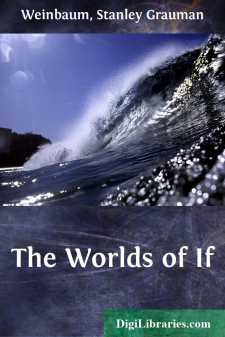Categories
- Antiques & Collectibles 13
- Architecture 36
- Art 48
- Bibles 22
- Biography & Autobiography 813
- Body, Mind & Spirit 141
- Business & Economics 28
- Children's Books 12
- Children's Fiction 9
- Computers 4
- Cooking 94
- Crafts & Hobbies 4
- Drama 346
- Education 46
- Family & Relationships 57
- Fiction 11826
- Games 19
- Gardening 17
- Health & Fitness 34
- History 1377
- House & Home 1
- Humor 147
- Juvenile Fiction 1873
- Juvenile Nonfiction 202
- Language Arts & Disciplines 88
- Law 16
- Literary Collections 686
- Literary Criticism 179
- Mathematics 13
- Medical 41
- Music 40
- Nature 179
- Non-Classifiable 1768
- Performing Arts 7
- Periodicals 1453
- Philosophy 64
- Photography 2
- Poetry 896
- Political Science 203
- Psychology 42
- Reference 154
- Religion 513
- Science 126
- Self-Help 83
- Social Science 81
- Sports & Recreation 34
- Study Aids 3
- Technology & Engineering 59
- Transportation 23
- Travel 463
- True Crime 29
The Worlds of If
Categories:
Description:
Excerpt
I stopped on the way to the Staten Island Airport to call up, and that was a mistake, doubtless, since I had a chance of making it otherwise. But the office was affable. "We'll hold the ship five minutes for you," the clerk said. "That's the best we can do."
So I rushed back to my taxi and we spun off to the third level and sped across the Staten bridge like a comet treading a steel rainbow. I had to be in Moscow by evening, by eight o'clock, in fact, for the opening of bids on the Ural Tunnel. The Government required the personal presence of an agent of each bidder, but the firm should have known better than to send me, Dixon Wells, even though the N. J. Wells Corporation is, so to speak, my father. I have a—well, an undeserved reputation for being late to everything; something always comes up to prevent me from getting anywhere on time. It's never my fault; this time it was a chance encounter with my old physics professor, old Haskel van Manderpootz. I couldn't very well just say hello and good-bye to him; I'd been a favorite of his back in the college days of 2014.
I missed the airliner, of course. I was still on the Staten Bridge when I heard the roar of the catapult and the Soviet rocket Baikal hummed over us like a tracer bullet with a long tail of flame.
We got the contract anyway; the firm wired our man in Beirut and he flew up to Moscow, but it didn't help my reputation. However, I felt a great deal better when I saw the evening papers; the Baikal, flying at the north edge of the eastbound lane to avoid a storm, had locked wings with a British fruitship and all but a hundred of her five hundred passengers were lost. I had almost become "the late Mr. Wells" in a grimmer sense.
I'd made an engagement for the following week with old van Manderpootz. It seems he'd transferred to N.Y.U. as head of the department of Newer Physics—that is, of Relativity. He deserved it; the old chap was a genius if ever there was one, and even now, eight years out of college, I remember more from his course than from half a dozen calculus, steam and gas, mechanics, and other hazards on the path to an engineer's education. So on Tuesday night I dropped in an hour or so late, to tell the truth, since I'd forgotten about the engagement until mid-evening.
He was reading in a room as disorderly as ever. "Humph!" he grunted. "Time changes everything but habit, I see. You were a good student, Dick, but I seem to recall that you always arrived in class toward the middle of the lecture."
"I had a course in East Hall just before," I explained. "I couldn't seem to make it in time."
"Well, it's time you learned to be on time," he growled. Then his eyes twinkled. "Time!" he ejaculated. "The most fascinating word in the language. Here we've used it five times (there goes the sixth time—and the seventh!) in the first minute of conversation; each of us understands the other, yet science is just beginning to learn its meaning. Science? I mean that I am beginning to learn."
I sat down. "You and science are synonymous," I grinned. "Aren't you one of the world's outstanding physicists?"
"One of them!" he snorted. "One of them, eh! And who are the others?"
"Oh, Corveille and Hastings and Shrimski—"
"Bah! Would you mention them in the same breath with the name of van Manderpootz?...









